School trips and uniform costs 'hitting poorest pupils'
- Published
- comments
Teenagers David and Joel are helping to advise the commissioner
The cost of school life - from uniform and lunches to trips - is unfairly hitting Wales' poorest families, the children's commissioner has warned.
Her "charter for change", external challenges government to "regain the ambition" to tackle issues which can lead to children's education suffering.
Sally Holland heard from 550 children, as well as parents and teachers.
"The time has come for schools to really analyse the cost of their school day," she said.
Ministers say work is "already well under way" to address her recommendations.
Ms Holland said: "We know it's a lot more than what happens in the classroom at your desk - it's all those extra, enriching activities like music, sport and trips that can really help a child's all-round education.
"Some schools do a marvellous job but they're hampered by low funds so there's a potential for government to expand grants but also for schools themselves to think, 'is it really necessary to send our pupils on this really expensive trip instead of one which is more accessible to everyone?'"

What are the pinch points in school?
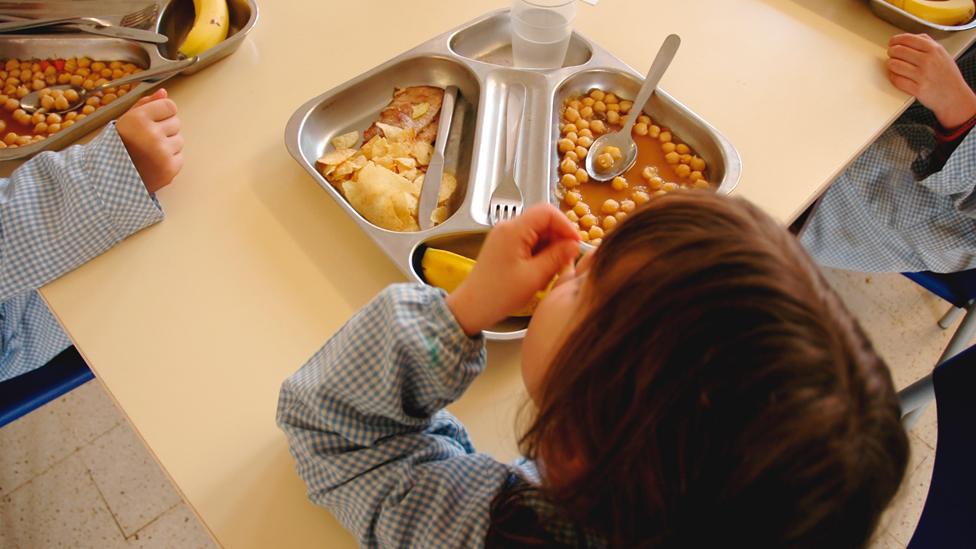
Some families caught just outside the eligibility for free school meals are struggling to afford food
Food issues go beyond "free school meals" eligibility.
Some families who do not qualify are still struggling to afford lunches and pupils can face difficult choices at break and meal times.
Breakfast clubs could also be oversubscribed with children turned away. One school had turned its water fountains off and students had to buy water.
Some families turn to food banks in the school holidays as potential sources of help when meals are not available - but schemes which combine food and physical activities in holiday times have proved successful and need to be extended.
School uniform costs are a "consistent concern".
One child said: "I had the same pair of shoes for five years and my parents would buy a uniform that would be too big, it would always end up looking frayed and messy."
A Welsh Government consultation on school uniforms,, external with the aim of making them more affordable, ended last month.
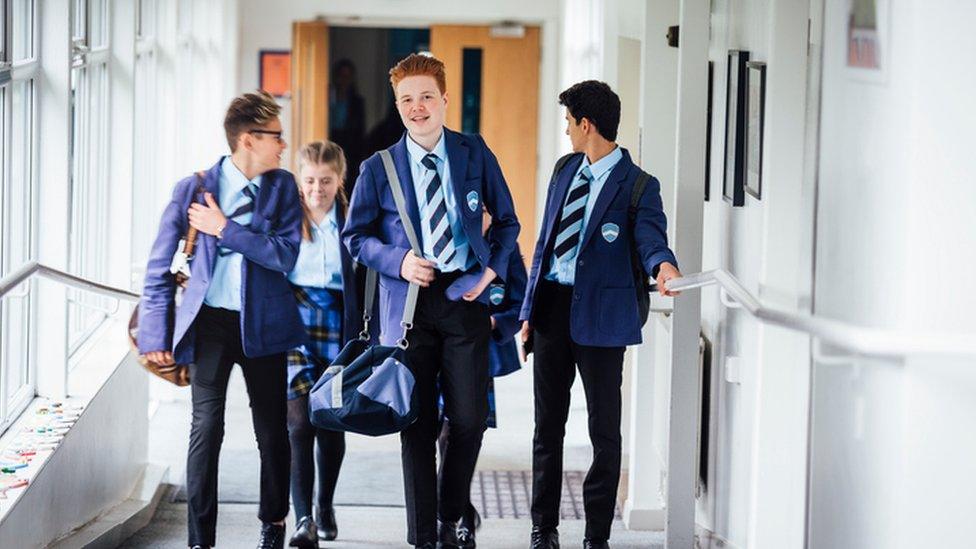
'Period poverty' was raised by girls and young women - and schemes like in Newport, where the council distributes free sanitary products to all high schools, need to be rolled out.
Others struggle to afford hygiene essentials such as toothpaste, soap and antiperspirant.
There was some concern over costs of braces for teeth and buying glasses.
Poverty can lead to stress - issues like bullying and affordability of clothing
Lack of access to technology could be an issue for some pupils - some schools insisted homework was emailed, when this was not possible for a particular student.
School trips could be a huge expense - and there could be a "sense of competition" between schools as to who could create the most extravagant trip.
Using credit unions to help save for these is one suggestion.
School events like Proms, photos, school concerts and themed costume days could be out of reach.
Sports activities - including gyms, swimming pools, and sport clubs, as well as affordability of kit and equipment in school was an issue raised.
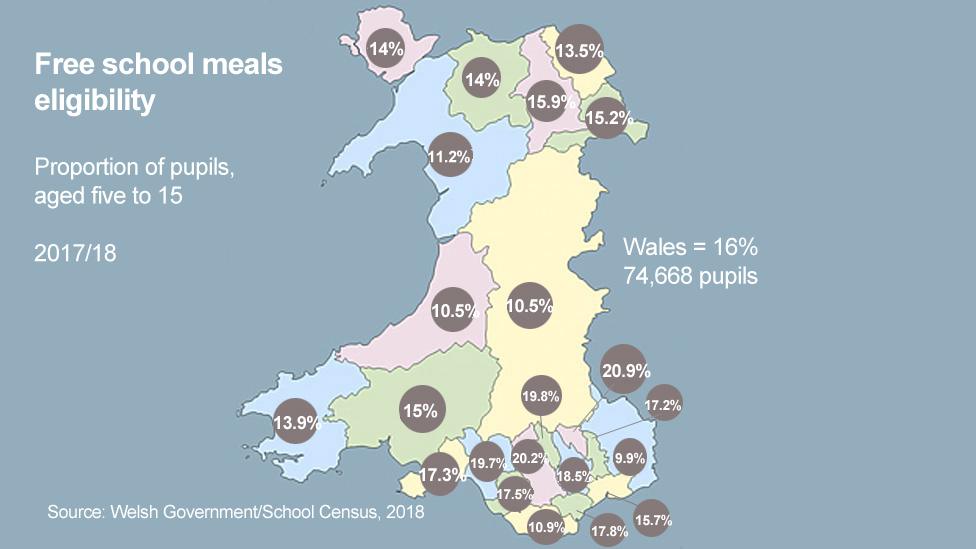
Blaenau Gwent and Rhondda Cynon Taff have the highest proportion of pupils who qualify for free school meals
As well as surveying 300 parents and speaking to experts, the children's commissioner held workshops with more than 550 children, aged from five upwards.
Recommendations include getting pupils to help develop school uniform recycling ideas - in Denbighshire, the Revolve programme encourages uniforms that children have outgrown to be used by others.
This helps the environment and families alike.
It also wants to stimulate discussions among all ages about the cost of going to school. The commissioner wants children and teachers to imagine what it is like if they are from a family that finds it difficult to make ends meet - encouraging an exercise around a fictional pupil, called Check With Ceri.
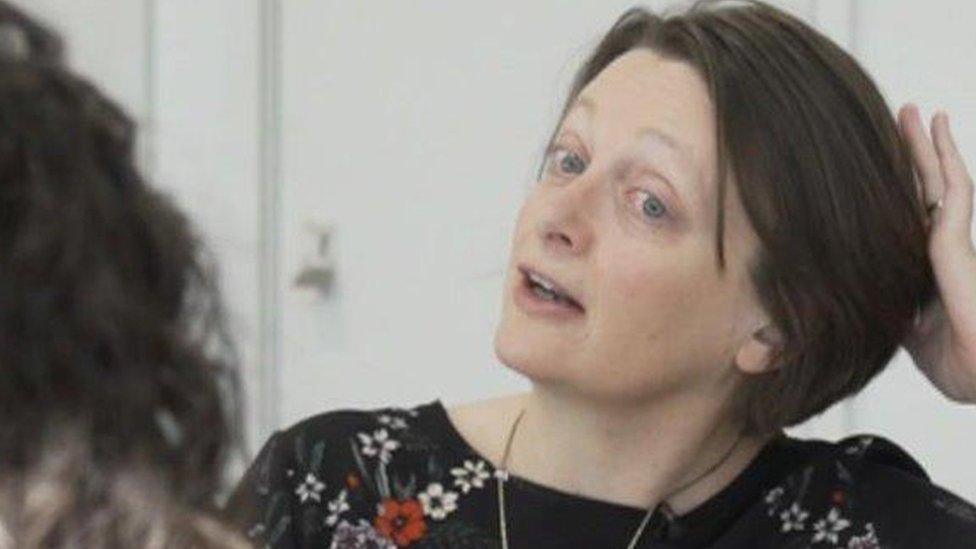
Sally Holland says the trend for schools to adopt smarter uniforms was an added pressure on parents
Nearly 75,000 pupils, aged five to 15, were eligible to claim free school meals in Wales in the last year - this is 16% of all pupils.
The report wants a look again at the criteria for free school meals as it believes children falling outside the qualification are still going hungry.
It suggests Wales looks at the system in Glasgow where families which get help to pay for housing and council tax automatically also get a school uniform grant.
The Welsh Government welcomed the report and said work was "already well underway" to address the recommendations made, with additional funding for its pupil development grant fund, revised school uniform guidance and an updated approach to free school meals.
"This report will help ensure that our programmes are having maximum impact in tackling child poverty and fully meet the needs of those who rely upon them," said a spokesman.
- Published29 November 2018
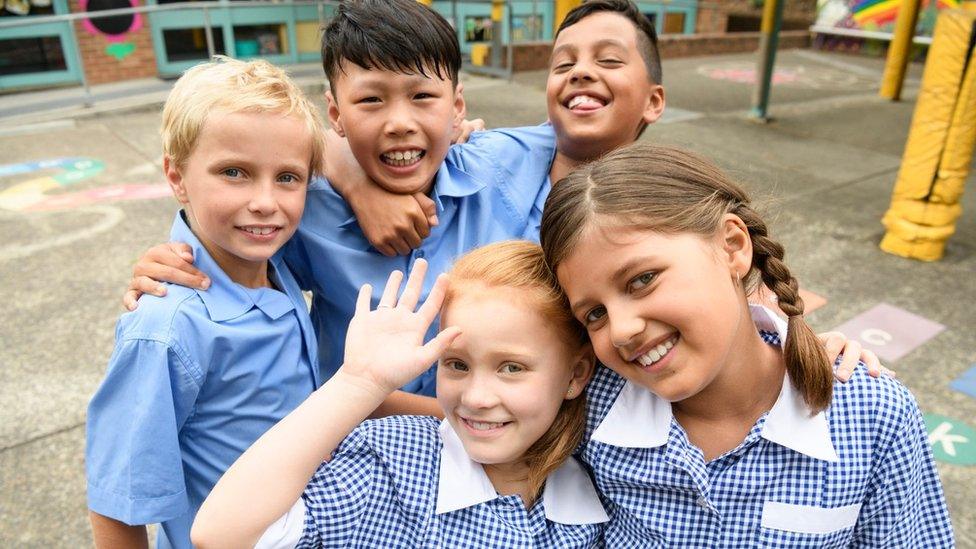
- Published6 April 2018
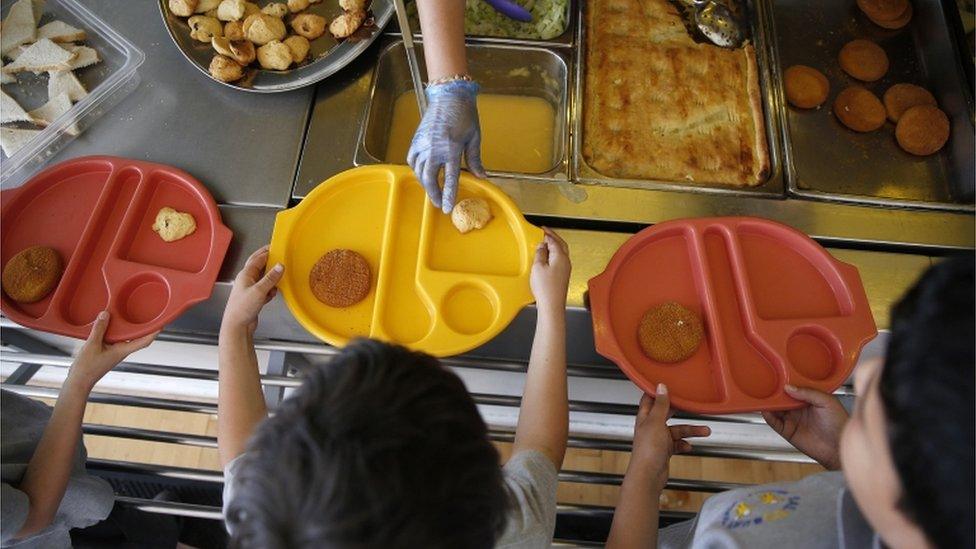
- Published4 October 2018
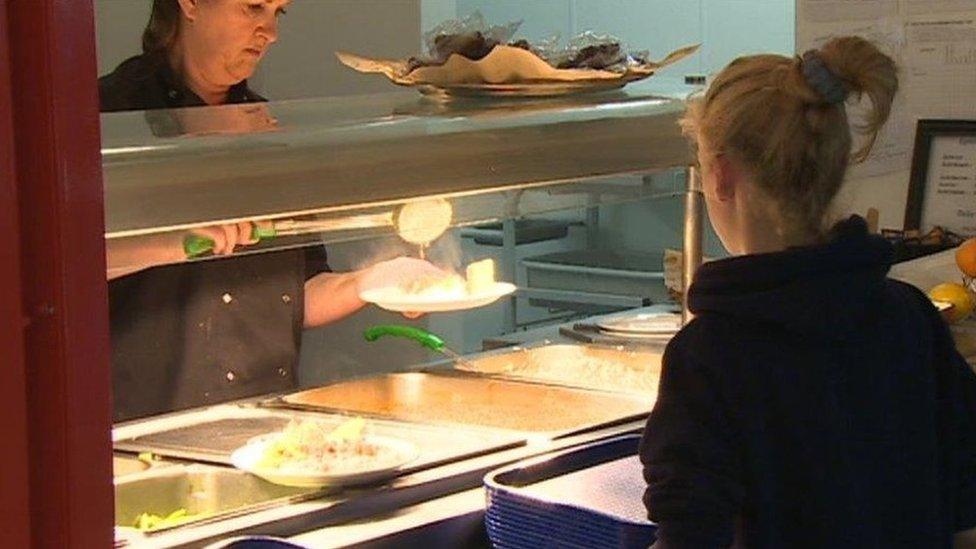
- Published5 April 2018
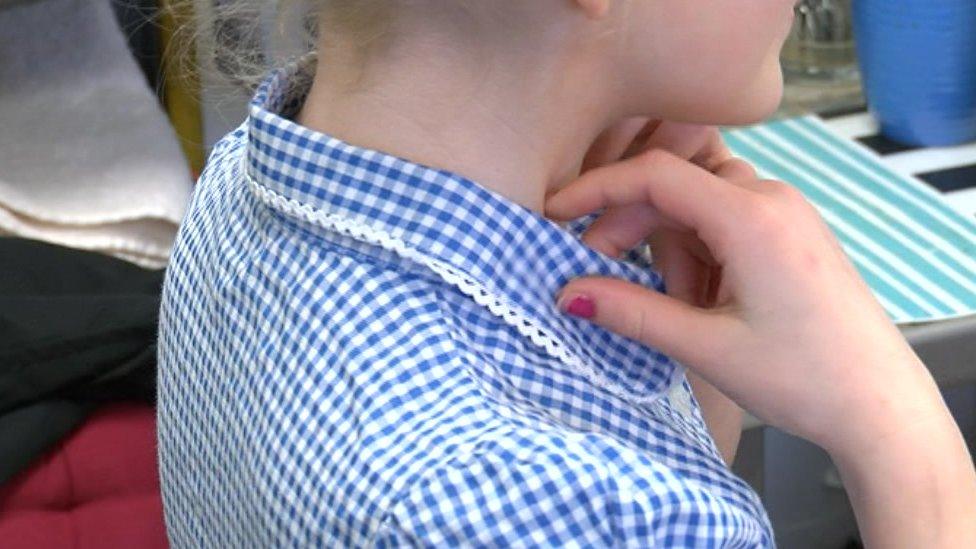
- Published5 April 2018
